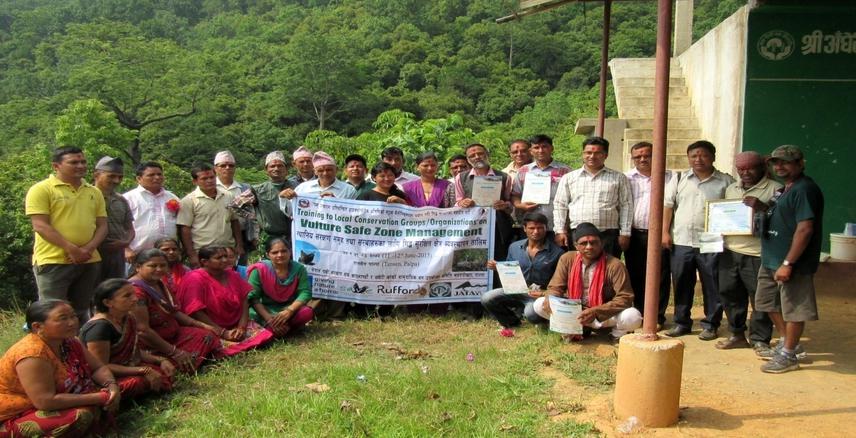Krishna Prasad Bhusal
Other projects
29 Nov 2011
Integrated Conservation of Critically Endangered Vultures in Arghakhanchi District, Nepal
4 Jun 2024
GPS-Tracking of the Endangered Egyptian Vulture Neophron Percnopterus to Inform the Species Conservation in Nepal
This project aims to advocate unregistered vet practitioners, monitor nesting colonies, build up capacities of local communities to support government's Vulture Conservation Action Plan and Manifesto chalked out by Saving Asia's Vulture from Extinction (SAVE) consortium.

Four species of vulture have been listed as critically endangered and one species as endangered due to rapid population decline within a short period. With the study in Nepal, India, and Pakistan indicating that Oriental white-backed vulture (Gyps bengalensis) declined by more than 97% and long billed (Gyps indicus) and slender-billed vulture (Gyps tenuirostris) decreasing by 95% over last one and half decade (Gilbert et al. 2006; Prakash et al. 2007). The cause of these declines is veterinary use of the non-steroidal anti-inflammatory drug (NSAID) diclofenac, which is widely used to treat livestock in South Asia (Oaks et al. 2004; Pain et al. 2008). Although diclofenac is legally band for its production and use in veterinary purpose, illegal use of human diclofenac for livestock treatment is still a serious problem.
Nepal supports six breeding resident vulture among nine species. The western mid hill supports five breeding resident species. In Arghakhanchi, ecological monitoring of globally threatened vultures has been completed and the area declared as veterinary diclofenac free zone by local government authorities under Rufford Small Grant. The vulture breeding sites are within community forest thus there is urgency to strengthen their capacity to conduct vulture conservation activities locally. Further to it the study recommended need to institutionalize vulture conservation activities through including in their forest operation plan for sustainable conservation. The registered vets have came across the key message not to use diclofenac for cattle through our advocacy and awareness however non-registered vet practitioners in the remote village are still unaware of the vulture conservation message and there are chances of illegal use of diclofenac in livestock treatment.
Indeed having potential range for critically endangered vultures, western mid hill is out of sight for many conservation projects besides Rufford small grant. This projects aims to extend its coverage in adjoining mid hill range of Palpa district where a new nest of Red-headed vulture has been recently recorded. Nest of this vulture species has been recorded after a gap of more than ten years in Nepal.